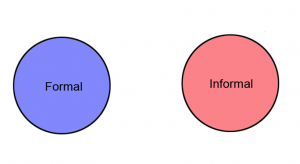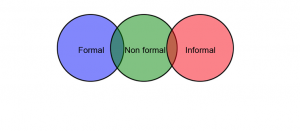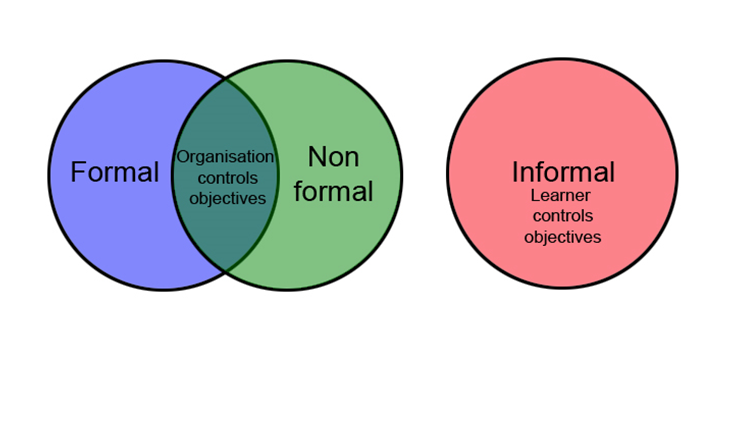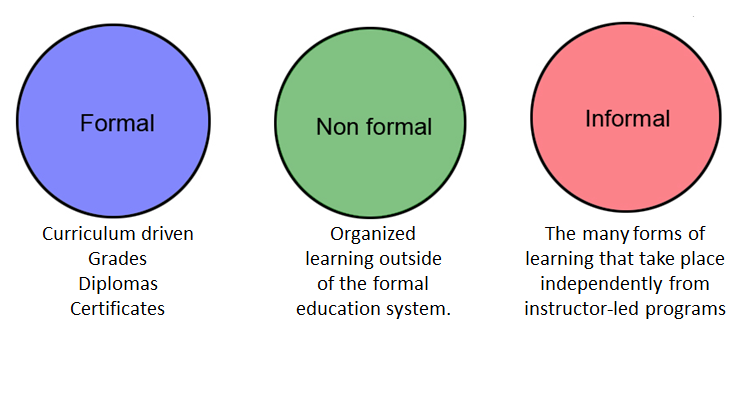Welcome back to the Process Facilitation peeps. We are looking at the roles of individuals and groups in Organizations. Well all these posts are about this but combining the previous two posts with this I am trying to give you a crash course in a detailed form and also in a way that suits the most situations. So please go back at least two posts if you are here for the first time.
Visit the two previous Posts below. 🙂 (my new readers)
- Organizational Learning- Workshop Design and
- Process Facilitation – Creative Collaboration & Structured Idea Development
Okay Let us see what we are going to look at today. Every Organization has a process of teaching and learning. The individual is responsible for the roles in an organization. Here I am only going to share different styles of Learning in an organizations and than it is up to you to decide the approach that you will take on with in your Organization. My aim is that:
- You should be able to give examples of different forms of Formal, Non-formal and Informal learning
I will in the end give you some examples from my groups. I studied during my studies about this and my Facilitators shared these notes with us. I am combining these notes along with my experiences and I am hoping that someone out there like you guys might get some important advice/point from my sharing.
The basic topic is Formal and Informal Learning. But their is another form of Learning that is Non Formal. So here let us see all three of them and compare them to some extent in order to understand them and later differentiate them in our own organizations and than it is your job to reflect on these points and think about making a change with in yourself and in your organizations.
Formal and Informal Learning are two separate circles and no point in life they can come together. These two are two sides of a river. The third kind of Learning which is Non-Formal Learning is very special in nature. This is a circle that touches both Formal and Informal Learning. See below
Formal Informal Learning
Formal Non formal and Informal Learning
These are taken from the Organisation for Economic Co-operation and Development OECD. Please visit there website to know more about them.
Now the question arises that who controls in these forms of Learning? I mean is the organization has a control over you as individual or you have control over yourself and the organization is there to support you. Also which is best suitable form of Learning? In the end don’t forget to reflect on these forms.
Organization is in control in Formal Learning and also to some extent in Non Formal learning. Whereas in Informal Learning it is the learner who is in control. I will come back to this point because I just wrote that Non Formal learning touches both Formal and Informal learning. I will come back to this in a moment. It is because Now I am going to explain these 3 one by one and it will be easy for me to explain this there. For now keep the below image in mind and continue with me.
Who controls Learning?
FORMAL LEARNING
Formal learning is Highly Institutionalized. Like for example in a school everything is written for you and you just have to answer the questions. I am giving this example because the school system in Indian subcontinent is like this and it is mostly the same in Europe. this is just an example and you can take in account any other organization as an example. Formal Learning is also Bureaucratic in nature as well as it is also Curriculum driven. There is a great Ted Talk on this topic and I am sharing the video here for your better understanding. In more simple words you get grades, diplomas and certificates by the end of this learning.
Non-formal Learning
It is an organized learning outside of the formal education system. It is tend to be short term and voluntary in nature. there is typically a curriculum and often a facilitator in this type of Learning. This is why Formal and Non formal learning are connected. Non formal learning is also connected to in formal learning because as you have read it is a voluntary learning and it also involves us facilitators. As Facilitation is what basically an Informal way of education. Now you see it was easy here to explain the difference. 🙂
In formal Learning
The term informal learning describes the many forms of learning that takes place independently from instructor-led programs. It occurs in a variety of places, such as at home, work, and through daily interactions. The great majority of learning in the workplace is informal.
To sum it all up in one image:
Sum Up Learning
In the beginning I promised that i will give you examples from my groups on Formal, Nor Formal and Informal learning. These are just my group’s examples so they may be not perfect. I am only sharing them to give you a starting point on your reflections.
Formal
- Classroom
- School
- Institutions
- On-line
- e-learning
- courses
- grades
- money
- seminars
- universities
- curiosity
Non Formal
- “Miyagi learning”
- brainstorming
- swimming
- museum
- training programme
- feedback <3
- educational games
- curiosity
- e-learning
Informal
- science parks
- museums
- love
- zoo
- parents
- home
- forest
- playground
- swimming
- walking
- curiosity
So this it folks. I urge you to reflect on this and give me your feedback. I would love to hear your opinion on this topic. It will help me improve my sharing. Until the next time have fun at your learning places.
//Imran




